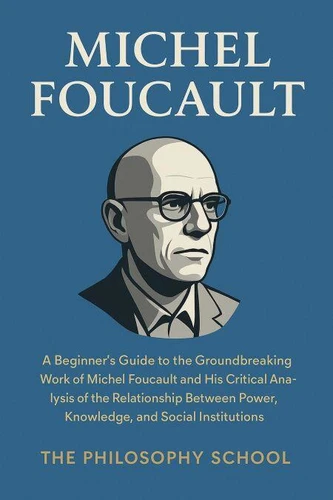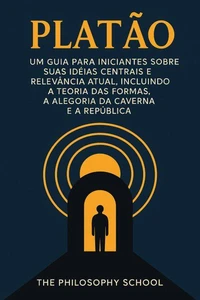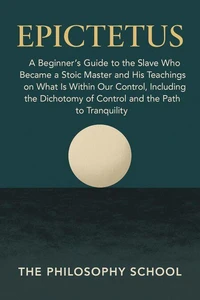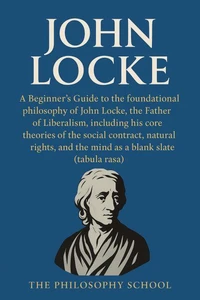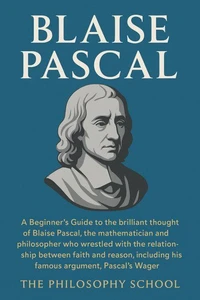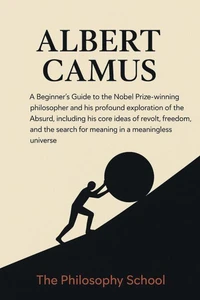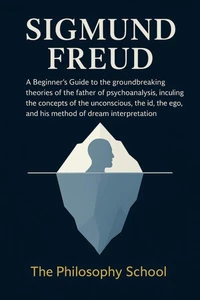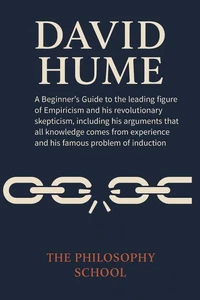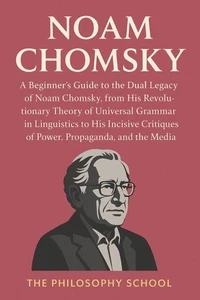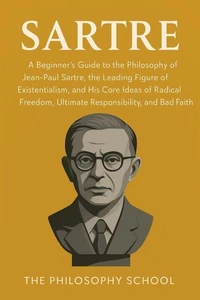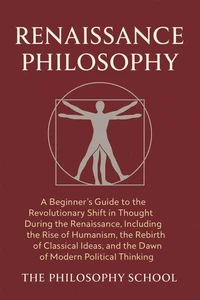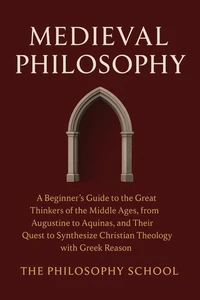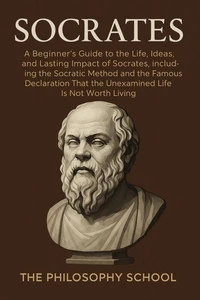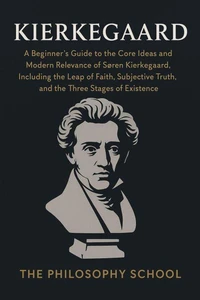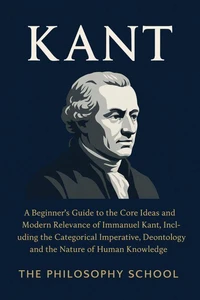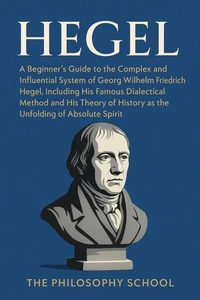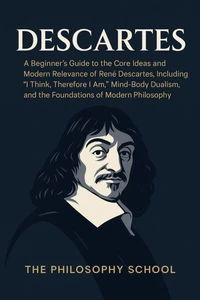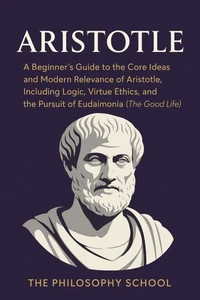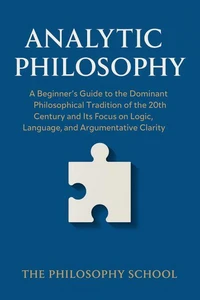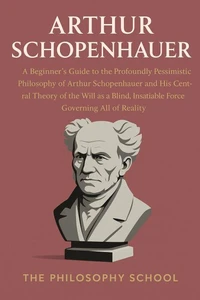Michel Foucault: A Beginner's Guide to the Groundbreaking Work of Michel Foucault and His Critical Analysis of the Relationship Between Power, Knowledge, and Social Institutions. Western Philosophy
Par :Formats :
Disponible dans votre compte client Decitre ou Furet du Nord dès validation de votre commande. Le format ePub est :
- Compatible avec une lecture sur My Vivlio (smartphone, tablette, ordinateur)
- Compatible avec une lecture sur liseuses Vivlio
- Pour les liseuses autres que Vivlio, vous devez utiliser le logiciel Adobe Digital Edition. Non compatible avec la lecture sur les liseuses Kindle, Remarkable et Sony
 , qui est-ce ?
, qui est-ce ?Notre partenaire de plateforme de lecture numérique où vous retrouverez l'ensemble de vos ebooks gratuitement
Pour en savoir plus sur nos ebooks, consultez notre aide en ligne ici
- FormatePub
- ISBN8232184162
- EAN9798232184162
- Date de parution17/09/2025
- Protection num.pas de protection
- Infos supplémentairesepub
- ÉditeurHamza elmir
Résumé
Michel Foucault: a name that sends ripples through academia, challenging conventional wisdom and sparking transformative insights into how our world truly operates. His groundbreaking work redefined power, knowledge, and the very institutions that shape our lives. MICHEL FOUCAULT: A Beginner's Guide invites you to demystify this probing 20th-century thinker. This book serves as your essential toolkit for critical thinking, equipping you with Foucault's powerful concepts and methods to analyze the hidden forces that construct our realities, from our understanding of sanity to the ways we define ourselves. Inside, you will explore: The making of a rebel thinker: Foucault's personal journey and intellectual context, revealing the roots of his skepticism toward established ideologies.
His revolutionary methodological approaches: archaeology, which uncovers the unconscious epistemes (frameworks of knowledge) that dictate what can be known in any given era; and genealogy, which traces the messy, contingent origins of our most cherished truths and institutions. Foucault's radical redefinition of power, moving beyond simple repression to reveal it as a diffuse, productive force that shapes our bodies and behaviors through "disciplinary power, " the pervasive reach of the Panopticon, and the life-administering mechanisms of biopower.
How knowledge and truth are not neutral or objective but are actively "produced" by specific historical and social configurations of power, forming "regimes of truth." Groundbreaking case studies from his most famous works: Madness and Civilization: How "mental illness" emerged as a social construct to control and categorize "unreason." Discipline and Punish: The transformation of punishment from public spectacle to the subtle, internalized control of the modern prison, making individuals "docile bodies." The History of Sexuality: A bold argument that "sexuality" itself is a historical invention, a "deployment of power/knowledge" designed to regulate populations rather than a natural, repressed essence.
Foucault's later "ethical turn" and the concept of "care of the self, " offering a vision of how individuals can actively shape their lives and practice freedom within existing power relations. The enduring relevance of Foucault's ideas in the 21st century, from the digital Panopticon of surveillance to the deconstruction of identity in queer and postcolonial thought, and the biopolitical governance during pandemics.
This accessible guide encourages you to question assumptions, challenge authority, and critically analyze the world around you, showing how Foucault's work remains an indispensable tool for understanding the hidden operations of power that continue to shape our lives.
His revolutionary methodological approaches: archaeology, which uncovers the unconscious epistemes (frameworks of knowledge) that dictate what can be known in any given era; and genealogy, which traces the messy, contingent origins of our most cherished truths and institutions. Foucault's radical redefinition of power, moving beyond simple repression to reveal it as a diffuse, productive force that shapes our bodies and behaviors through "disciplinary power, " the pervasive reach of the Panopticon, and the life-administering mechanisms of biopower.
How knowledge and truth are not neutral or objective but are actively "produced" by specific historical and social configurations of power, forming "regimes of truth." Groundbreaking case studies from his most famous works: Madness and Civilization: How "mental illness" emerged as a social construct to control and categorize "unreason." Discipline and Punish: The transformation of punishment from public spectacle to the subtle, internalized control of the modern prison, making individuals "docile bodies." The History of Sexuality: A bold argument that "sexuality" itself is a historical invention, a "deployment of power/knowledge" designed to regulate populations rather than a natural, repressed essence.
Foucault's later "ethical turn" and the concept of "care of the self, " offering a vision of how individuals can actively shape their lives and practice freedom within existing power relations. The enduring relevance of Foucault's ideas in the 21st century, from the digital Panopticon of surveillance to the deconstruction of identity in queer and postcolonial thought, and the biopolitical governance during pandemics.
This accessible guide encourages you to question assumptions, challenge authority, and critically analyze the world around you, showing how Foucault's work remains an indispensable tool for understanding the hidden operations of power that continue to shape our lives.
Michel Foucault: a name that sends ripples through academia, challenging conventional wisdom and sparking transformative insights into how our world truly operates. His groundbreaking work redefined power, knowledge, and the very institutions that shape our lives. MICHEL FOUCAULT: A Beginner's Guide invites you to demystify this probing 20th-century thinker. This book serves as your essential toolkit for critical thinking, equipping you with Foucault's powerful concepts and methods to analyze the hidden forces that construct our realities, from our understanding of sanity to the ways we define ourselves. Inside, you will explore: The making of a rebel thinker: Foucault's personal journey and intellectual context, revealing the roots of his skepticism toward established ideologies.
His revolutionary methodological approaches: archaeology, which uncovers the unconscious epistemes (frameworks of knowledge) that dictate what can be known in any given era; and genealogy, which traces the messy, contingent origins of our most cherished truths and institutions. Foucault's radical redefinition of power, moving beyond simple repression to reveal it as a diffuse, productive force that shapes our bodies and behaviors through "disciplinary power, " the pervasive reach of the Panopticon, and the life-administering mechanisms of biopower.
How knowledge and truth are not neutral or objective but are actively "produced" by specific historical and social configurations of power, forming "regimes of truth." Groundbreaking case studies from his most famous works: Madness and Civilization: How "mental illness" emerged as a social construct to control and categorize "unreason." Discipline and Punish: The transformation of punishment from public spectacle to the subtle, internalized control of the modern prison, making individuals "docile bodies." The History of Sexuality: A bold argument that "sexuality" itself is a historical invention, a "deployment of power/knowledge" designed to regulate populations rather than a natural, repressed essence.
Foucault's later "ethical turn" and the concept of "care of the self, " offering a vision of how individuals can actively shape their lives and practice freedom within existing power relations. The enduring relevance of Foucault's ideas in the 21st century, from the digital Panopticon of surveillance to the deconstruction of identity in queer and postcolonial thought, and the biopolitical governance during pandemics.
This accessible guide encourages you to question assumptions, challenge authority, and critically analyze the world around you, showing how Foucault's work remains an indispensable tool for understanding the hidden operations of power that continue to shape our lives.
His revolutionary methodological approaches: archaeology, which uncovers the unconscious epistemes (frameworks of knowledge) that dictate what can be known in any given era; and genealogy, which traces the messy, contingent origins of our most cherished truths and institutions. Foucault's radical redefinition of power, moving beyond simple repression to reveal it as a diffuse, productive force that shapes our bodies and behaviors through "disciplinary power, " the pervasive reach of the Panopticon, and the life-administering mechanisms of biopower.
How knowledge and truth are not neutral or objective but are actively "produced" by specific historical and social configurations of power, forming "regimes of truth." Groundbreaking case studies from his most famous works: Madness and Civilization: How "mental illness" emerged as a social construct to control and categorize "unreason." Discipline and Punish: The transformation of punishment from public spectacle to the subtle, internalized control of the modern prison, making individuals "docile bodies." The History of Sexuality: A bold argument that "sexuality" itself is a historical invention, a "deployment of power/knowledge" designed to regulate populations rather than a natural, repressed essence.
Foucault's later "ethical turn" and the concept of "care of the self, " offering a vision of how individuals can actively shape their lives and practice freedom within existing power relations. The enduring relevance of Foucault's ideas in the 21st century, from the digital Panopticon of surveillance to the deconstruction of identity in queer and postcolonial thought, and the biopolitical governance during pandemics.
This accessible guide encourages you to question assumptions, challenge authority, and critically analyze the world around you, showing how Foucault's work remains an indispensable tool for understanding the hidden operations of power that continue to shape our lives.

